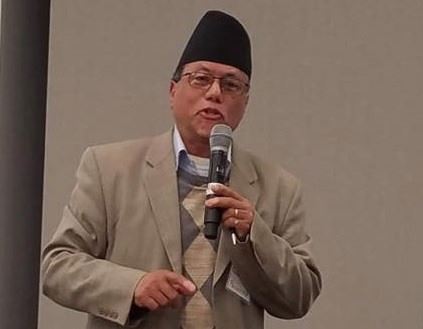 |
|
Presenter Bios & Abstracts
Disclaimer: All sessions will be held LIVE ONLY. No recordings will be available after the conference.
OSTI is not responsible for the content of the presentations.
Keynote Speaker  Dr. Carola F. Berger |
Dr. Carola F. Berger is an ATA-certified German to English and English to German patent translator and – yes – post-editor with a PhD in physics and a master’s degree in engineering physics. Carola became interested in the topic of artificial intelligence after reading about the allegedly impending robot apocalypse. To prepare for the uprising of intelligent machines, or, more likely, for self-driving lawn mowers going on a rampage, she has completed several online courses on artificial intelligence, machine learning, and natural language processing. To prepare others, she has given numerous presentations on the topic for various associations including ATA and OSTI. Presentation: Is the Robot Apocalypse Near? A few years ago, neural machine translation engines allegedly achieved parity to human scientific and technical translators. Now, large language models such as ChatGPT are allegedly coming for the jobs of creatives, such as creative writers and literary translators. This presentation will attempt to separate fact from fiction, reality from hype. For this purpose, we will open Pandora’s black box of artificial intelligence, have a non-technical look inside, and explore the actual current capabilities and limits of these machines. You will leave the presentation with a better understanding of how artificial intelligence works, why machines can’t think yet, and what you can do to stay ahead of the machines. |
|||
| Friday September 29th Presentations Order of Appearance |
||||
|
|
Ester is a community and court interpreter and translator, and a learner and practitioner of language justice. She provides language services to social justice groups, community organizations, schools, attorneys, and people involved in the legal and immigration systems. She also has over 15 years of experience working with survivors of domestic violence. Growing up as part of a cultural and linguistic minority in Europe that was persecuted under fascism, Ester started reflecting on the connections between language justice, political violence, and trauma early on. Moving to the U.S. and working in solidarity with racial justice and decolonizing movements here, expanded and complemented her personal experiences of both trauma and language injustice, and put her in a life-long journey of learning and sharing. She is active with several social justice and language justice groups in the Boston area. Ester believes in a collective approach to trauma and in putting racial justice at the center of language and cultural work. When not being a language geek, she can be found reading incessantly, running, cooking, or video-chatting with far away family. She keeps a family dictionary of swears, with several languages involved. Presentation: More than Words: Trauma-aware Language Justice Work - Language is not only a tool for communication, but also an expression of culture and identity very much linked to personal and historical trauma and resilience. That is true for language professionals as much as other professionals who are bilingual or regularly work with communities impacted by language injustice and other forms of oppression. The goal of this presentation is to learn about trauma and vicarious trauma in connection to language and interpretation work. We will share tips for minimizing vicarious trauma for interpreters, translators and other professionals who regularly work across languages, and we will explore best practices for everyone to add trauma awareness to any work with speakers of non-dominant languages. |
|||
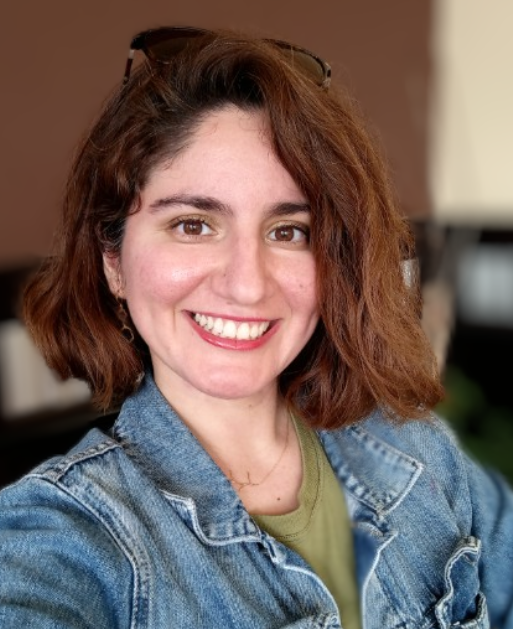 Romina Espinosa Romina Espinosa Carla Alegre |
Romina Espinosa (Lima, Peru) is a professional Spanish<>English interpreter, translator, and creative writer based in San Diego, California. She works as an in-house medical interpreter at UC San Diego Health and offers language services as a freelance writer, translator, and interpreter for direct clients and boutique language agencies. She has been providing language access services since 2017. Romina holds a BA in International Studies from University of California San Diego, a minor in Spanish Literature completed at the University of Granada, Spain and an MA in Gender and Diversity Studies from University of Oviedo, Spain. She furthered her interdisciplinary studies by completing a Certificate in Translation and Interpretation (Spanish/English) from University of California San Diego Extension. Ms. Espinosa is recognized in the United States as a Certified Healthcare Interpreter-Spanish through the Certification Commission for Healthcare Interpreters (CCHI). In 2022, she received the Above and Beyond Award by the National Association of Educational Translators and Interpreters of Spoken Languages (NAETISL) in recognition for her outstanding volunteer service. Ms. Espinosa is a member of three language organizations: NAETISL, OSTI, and NCIHC. Her areas of expertise include conference, community, education, immigration, medical, and mental health interpreting. Outside of work, Romina enjoys traveling, running outdoors (she is a five-time international marathon runner), being present for her loved ones, and expressing her creativity through acrylic painting and writing poetry. Carla Alegre is the Interpreter Services Department Manager and a Spanish Medical Interpreter at UC San Diego Health. Carla is a native of Peru, having been raised in Lima. She finished her high school studies and moved to the United States as a student. She learned English as a second language and earned her BA from Loyola University, Chicago. She then furthered her education by completing the professional certificate of Translation and Interpretation (Spanish/English) from University of California San Diego Division of Extended Studies. The Certification Commission for Healthcare Interpreters (CCHI) also recognizes her as a Certified Healthcare Interpreter- Spanish. She has been providing language services since 2011 and her areas of expertise include medical, conference, community, legal, education, immigration, transcription, video, and phone. Carla became the Manager of Interpreter Services in February 2021. She is dedicated to assuring that the Interpreter Services Department is “seen and understood” as a key component to healthcare. As a proud leader, she believes in personal growth and has obtained her Green and Black Belt from the Lean Six Sigma Training. This year she was chosen by UCSDH to be part of the Health Leadership Academy. Carla reinforces a culture of continuous improvement, patient-centered care, and transparency. In her free time, Carla spends time learning Brazilian Portuguese, loves Latin dancing, is a huge soccer fan, and a chess player! Presentation: Remediating Situations: Important Tips for Interpreting Success - This presentation is intended for any individual interested in the field of medical interpretation, as well as for new and/or seasoned interpreters working in other areas. During the first section of the presentation, in-house medical interpreter(s) and a supervisor from UC San Diego Health, the only academic health system in San Diego, California, will be sharing the ins and outs of interpreting in a U.S. hospital system and offering tips for success. The second section of the presentation will focus on oopsies and other unexpected situations experienced by UC San Diego Health’s in-house medical interpreters. They will explain how they managed to think on their toes during these oopsie moments to find the best immediate solutions. |
|||
.jpg) Dr. Ana Soler |
Dr. Ana Soler is the Chairperson of the National Association of Educational Translators and Interpreters of Spoken Languages (NAETISL: naetisl.org) and Founder of SeSo, Inc. (sesoincga.org), a source of qualified and trained interpreters, and multicultural family engagement workshops for school districts. She completed her degree in Social Work at Georgia State University, her master’s degree in Public Health at Emory University, and is a Ph.D. in Special Education student at the University of Georgia. For over a decade, Ana worked with the largest school district in Georgia as the Language Services and Parent Outreach Coordinator, developing, implementing, and evaluating professional development opportunities for multilingual personnel, as well as discovering endless opportunities to engage multilingual families in their children’s education. Ana has authored interpreter training curricula nationally including the Intercultural Parent and Youth Leadership Program, the Interpretation Academy for Bilingual High School Students, the Arkansas Interpreter in Education Credential Training, a 40-hour course for medical interpreters, and online courses for the University of Georgia, including the Professional Interpreter in Education Certificate course, the Professional Interpreter in Special Education Certificate course, and the Professional Translator in Education course. Presentation: Understanding Abbreviations: MTSS, RTI, PBIS, and more - Interpreters who support families and educators in school settings will attend meetings where interventions and instruction strategies will be part of the conversation. Three of the most common intervention and support models are part of the Multi-Tiered System of Supports (MTSS) and include Positive Behavioral Interventions and Supports (PBIS), and Response to Intervention (RTI). These strategies may become part of the eligibility process for special education and through this session, interpreters will have the opportunity to expand their personal glossaries and prepare to provide accurate renditions. |
|||
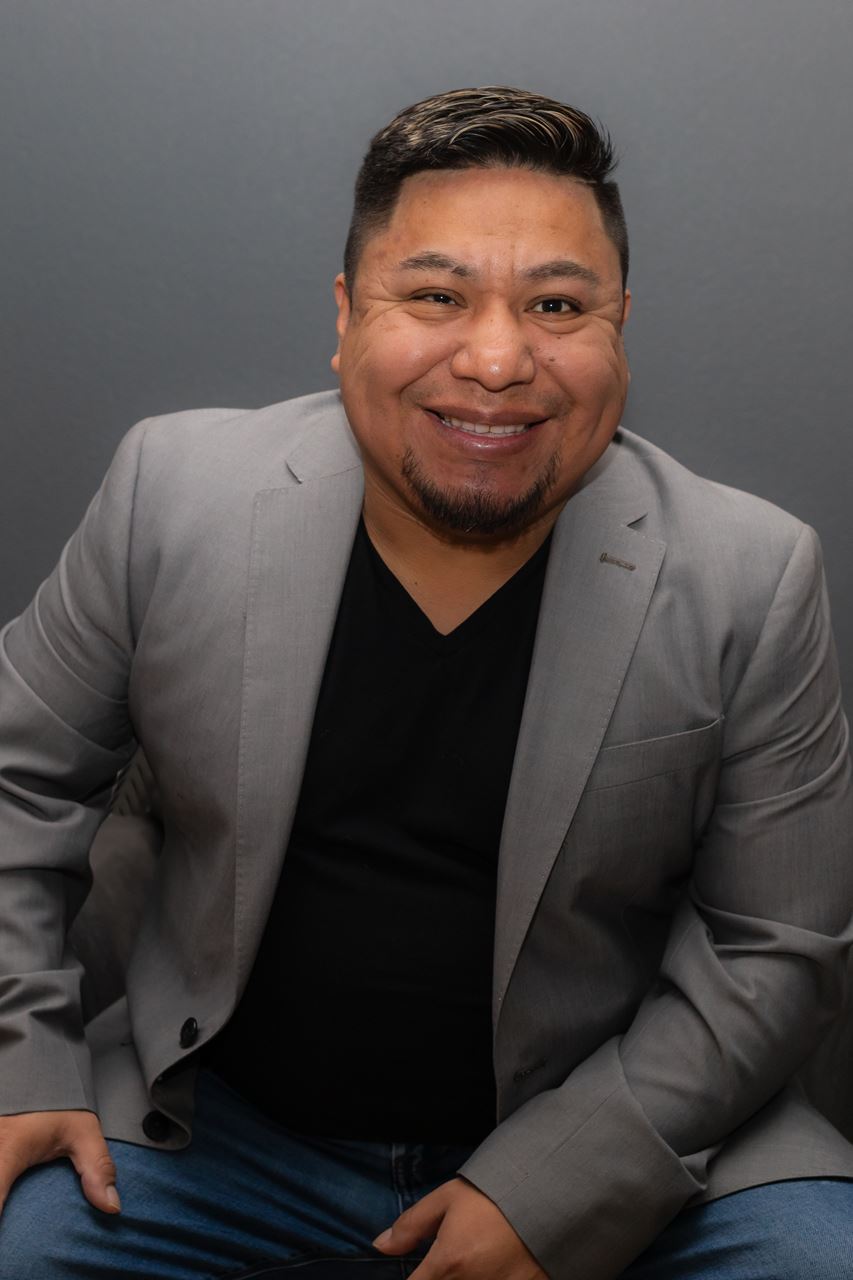 Valentin Sanchez |
Valentín Sánchez is an experienced Senior Paralegal at the Oregon Law Center's Farmworker Program, where he has been making significant contributions since 2002. In this role, he focuses on conducting outreach with farmworkers across the state of Oregon. He achieves this through a variety of methods such as presentations, radio shows, resource events, home visits, and visits to employer-provided labor housing. His outreach work has allowed him to develop a deep understanding of the unique challenges faced by farmworkers, and he has been able to develop educational materials in several indigenous languages, such as Mixteco, Triqui, Zapoteco, Mam, and others. Apart from his outreach work, Mr. Sánchez also helps in employment-related cases, including wage claims, health and safety issues, and discrimination cases. He has worked on numerous litigation teams and research projects focused on occupational health and safety and workplace sexual harassment with farmworkers, which has given him a strong understanding of the issues facing farmworkers in Oregon. In addition to his work at the Oregon Law Center, Mr. Sánchez is also pursuing a degree in Sociology and Environmental Studies at Linfield University. He is an active member of the community and serves as the Chair of the Board of Directors of Unidos Bridging Community, a nonprofit organization based in Yamhill County. Presentation: Breaking Barriers: Effective Communication with Mesoamerican Indigenous Language Speakers - Did you know that people in Oregon speak about 30 different Mesoamerican Indigenous languages from Mexico and Guatemala? The Oregon Law Center's Farmworker Program has worked with Mesoamerican indigenous communities for over two decades, focusing on civil matters related to employment and providing legal representation for administrative and legal proceedings. However, effective communication with non-English speakers, particularly Mesoamerican indigenous language speakers, requires navigating a unique set of cultural and linguistic challenges. In this workshop, we will explore some of these challenges, including common misunderstandings, and provide strategies to overcome them. Attendees will learn the importance of building trust with clients, effective community engagement, and using language-match interpreters to ensure accurate communication. This workshop is essential for interpreters who want to better understand the cultural and linguistic needs of Mesoamerican Indigenous language speakers and provide the best relay-interpretation. Join us to gain practical insights and knowledge to reduce cultural and linguistic barriers and enhance effective communication with Mesoamerican Indigenous communities. |
|||
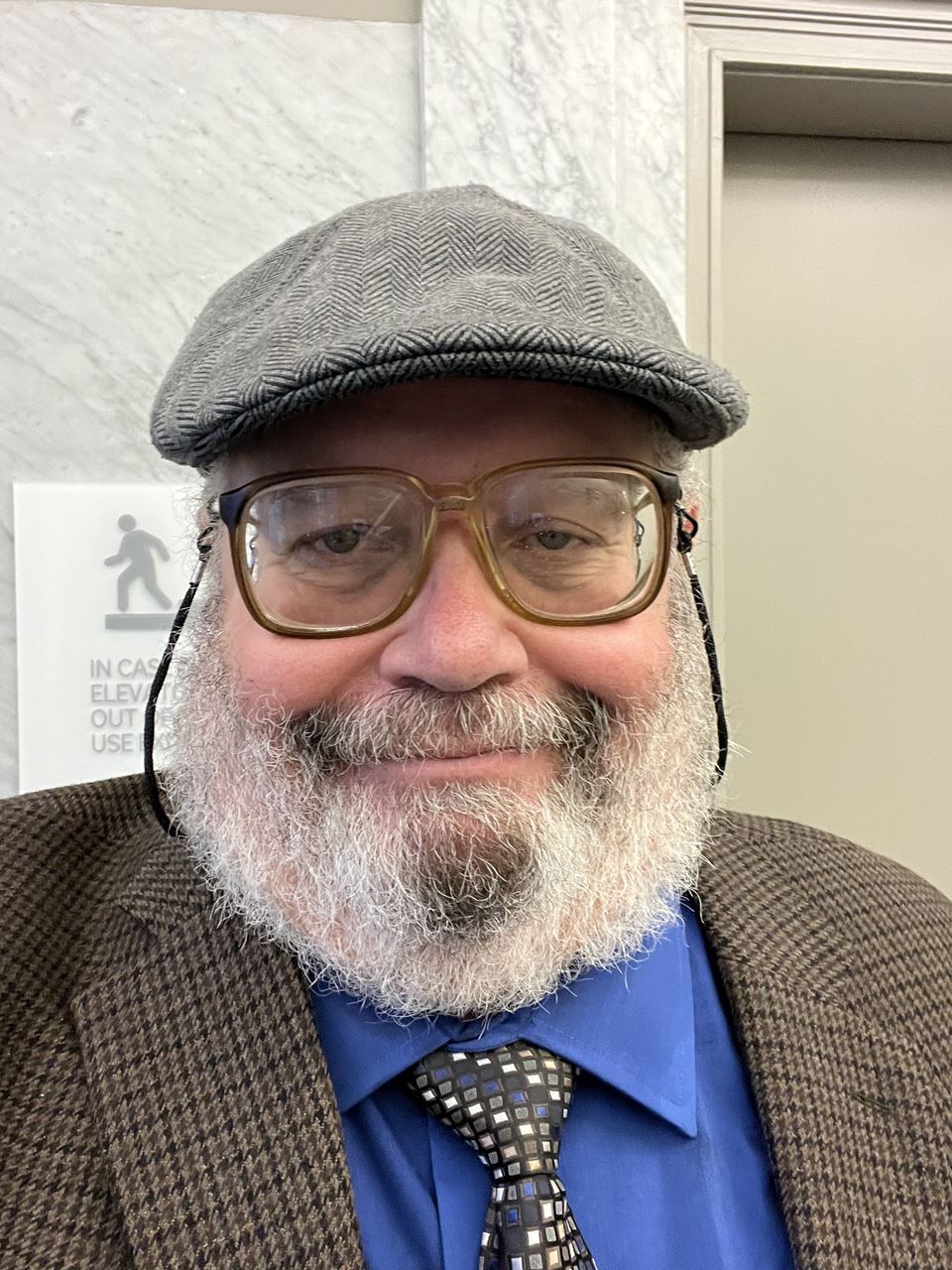 Tony Rosado |
Tony is a conference and court/legal interpreter with over 35 years of experience interpreting all over the world. An attorney from Escuela Libre de Derecho in Mexico City; he has worked internationally as a conference interpreter, and interpreted for high profile conferences, court proceedings, sports events, and TV broadcasts, including presidential debates and political conventions. He has worked with many top-level politicians, celebrities, athletes, and entrepreneurs. The author of two books on court interpreting, he is a visiting professor at various universities in the U.S. and overseas, a well-known conference presenter, a United States Department of State independent contractor at the conference-level, a court certified interpreter by the Administrative Office of the U.S. Courts and several States, the current Chair of AIIC-USA Regional Bureau, the Chair of the Ethics Committee of IAPTI, and the author of the popular blog “The Professional Interpreter.” Presentation: Preparing for a Trial: What did I Forget? - Interpreting trials is complex and difficult, it requires thorough preparation before the assignment, and a high level of concentration only achieved when the interpreter fully understands not just what is happening at the trial, but why it is happening. This is only achievable when we know how to get ready; where to look for what we need. This session will cover the benefits of a good preparation and clear understanding of what the lawyers are doing that participants can use to get ready for an assignment, and to explain to clients why an interpretation cannot be properly provided without the required documents and information about a case. The presenter will spell out the role of the interpreter at each of the stages of a court assignment, from self-evaluation before accepting a case, to detailed preparation, and performance during the trial. Mr. Rosado will talk about the tools interpreters may use to get acquainted with the details of a case, how to develop glossaries, what textbooks should be available during preparation and rendition, and how to be assertive when requesting the appropriate working conditions. Those attending will learn, through theoretical description and practical examples, how the best interpreters work. The participants will leave with the tools to advance their career as court interpreters. |
|||
|
Tsukumo Niwa |
Tsukumo Niwa (she/her) is a freelance interpreter and translator working in Japanese-English language combination. Growing up bilingual and bicultural in Japan and the United States, she first interpreted and translated for her Japanese parents and community as a teenager and then grew up to become fully trained and certified in language services. She holds CoreCHI, DOJ-EOIR, and Arizona Court Tier A Interpreter credentials, and she is the winner of 2021 Japan Association of Conference Interpreters Interpreting Contest. She has attended the Middlebury Institute of International Studies and the University of Michigan-Ann Arbor, where she started her exploration into social justice and diversity, equity, and inclusion. Ever since, she has been striving to use her skills in intercultural communications to promote a world where people can collaborate across languages and empower each other to create a better future. Presentation: Becoming and Interculturally Competent Translator and Interpreter - As navigators of languages and cultures, translators and interpreters must be interculturally competent. But what does that mean? This presentation will explore nuances of language and culture and suggest strategies for becoming more culturally competent and fluent in our work as communicators from diverse languages into English. Understanding intercultural competence begins with self-reflection. We all hold diverse identities, and we carry them everywhere. When we choose to translate a fragment of text (or not), or walk into a room to interpret, those identities inform the way in which we interact with individuals who use different languages. Some identities are more privileged than the others, and they all intersect in unique ways to influence the way we see the world. This session has two main goals. First, we will discover the identities and values that inform our work as translators and interpreters and reflect on how they inform and affect our work. Then, we will explore the field of intercultural competence and how we can utilize these concepts in our work. By the end of the session, participants will be able to better understand what identities and values are most salient to them, and how those interact with other stakeholders in our projects. |
|||
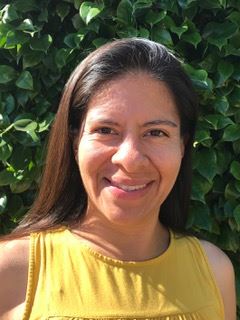 Vanessa Segovia |
Vanessa Segovia, BSN, RN, PHN, has been a registered nurse for 15 years, working primarily in the public health field. Currently, she is the public health nurse for Contra Costa Health in the Childhood Lead Poisoning Prevention Program, providing case management services for lead poisoned children and raising public awareness on this issue. Presentation: Preventing Childhood Lead Poisoning for Translators and Interpreters - Lead poisoning is a public health concern in many parts of the world. The widespread use of this toxic metal has contaminated our environments. Young children are at greatest risk of exposure and harmful health effects, including damage to the brain and nervous system. Learn key terminology that will help you interpret at medical appointments about lead exposure or when translating articles about preventing childhood lead poisoning. The presentation focuses on vocabulary related to identifying sources; how lead enters and moves through the body; the health effects; treatment and prevention. Interpreters and translators will gain knowledge about common terms used by healthcare and environmental professionals that will support them in their roles as language ambassadors. |
|||
 Dr. A. Kaiser |
Dr. A. Kaiser is a Pushcart Prize-nominated poet, author of glint and NEA-awarded translator of Catalan, French and Spanish. AK~ is currently searching for a home for her manuscript, SHED, as well as for her translation of Catalan poet Anna Gual’s work, Unnamable. In 2023, her work was supported by Millay Arts (NY), NES (Skagaströnd), Write On, Door County (WI) and la Cité Internationale des Arts (Paris). Recent and forthcoming poems, prose, translations, and photos in Amsterdam Quarterly, Ginosko, Harvard Review's Omniglots Series, Hyperion, POETRY, and Poetry International. AK~ has also participated in the Sant Jordi Festivals 2020 & 2023, and for the latter, with her translations of works by Anna Gual and Cebrià Montoliu. Her poem, “Astronaut, or Blues Singer” (glint, Milk and Cake Press, December 2019) is being transformed into song by performer Mel.lif.lu.ous and will be released as part of the album, “Spákonufell”, later this year. Presentations: Literary Translation Workshop - This multi-lingual poetry into English translation workshop is modeled after very enriching ones the presenter attended at ALTA’s 45th Conference. In those online sessions, respectively with Katherine Hedeen and Sawako Nakayasu as guides, six translators presented one poem or 1-page prose piece that they had translated and about which they had questions. Both the original text and translation will be sent to all participants ahead of time, but discussion focuses on the translated text for grammatical, thematic and flow issues. If someone happens to know the source language, they, of course, can integrate this into their comments and assistance to the translator. |
|||
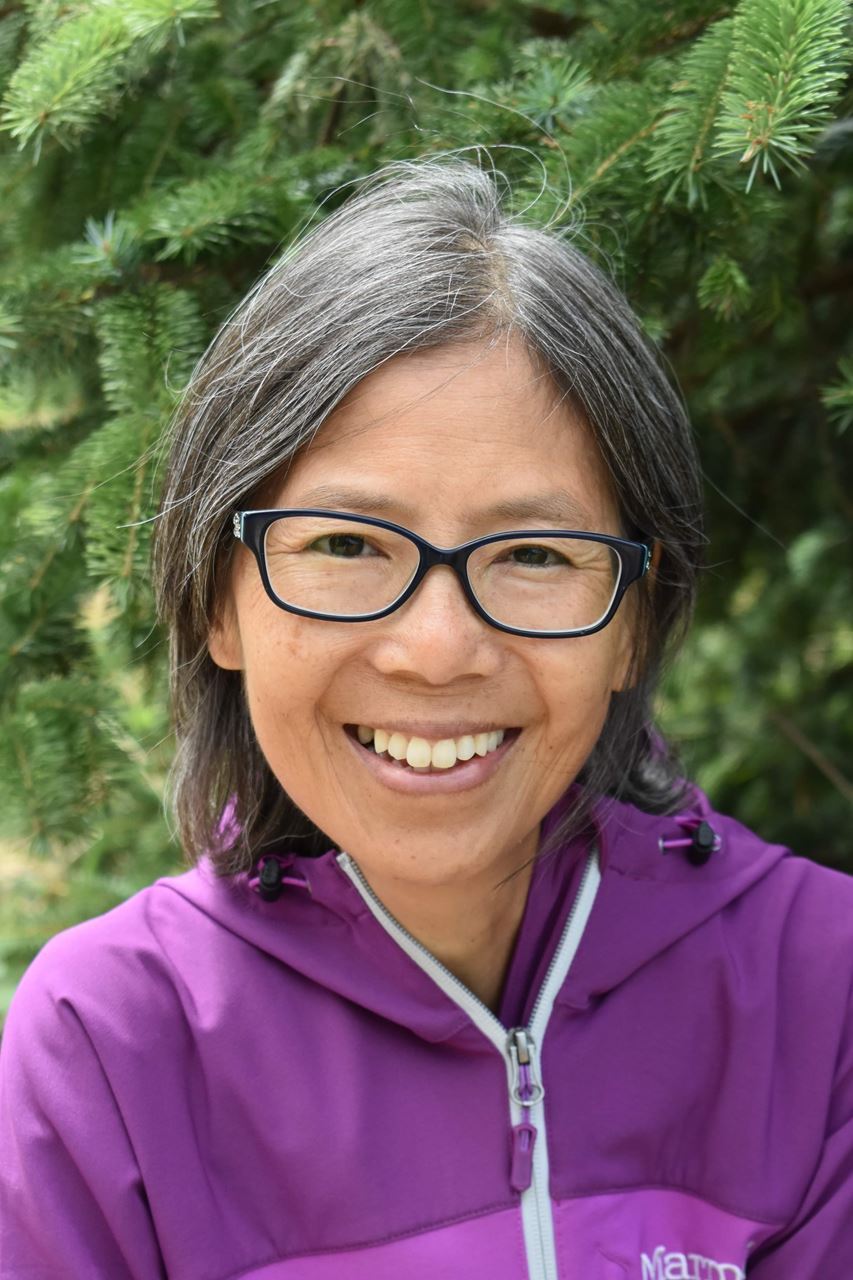 Lilly Lee |
Lilly Lee, MPT, orthopedic clinical specialist, certified manual physical therapist. She has been a Call Telehealth physical therapist for Good Health Physical Therapy, Portland, Oregon, since 2023 and has twenty years of clinical experience. She's a graduate of Mayo School of Health-Related Sciences where she received a Master of Physical Therapy. She enjoys sharing knowledge about how musculoskeletal conditions can impact our lives every day, helping others on their journey toward increased mobility, and working in our communities. Presentation: When Things Go Awry with our Joints: Anatomy and Key Terminology - This presentation will introduce medical translators and interpreters to terminology related to joints that hold up our skeleton and enable us to move and function. This topic will also be relevant to court interpreters since auto accidents and some on-the-job injuries can also impact mobility and joint function. I will incorporate medical vocabulary used by physical therapists to assess joints of the human body. How do our bones fit together to allow certain movements? The names for different types of joints are descriptive and help us ascertain their allowed movements. For example, synovial joints are either hinge, planar, saddle, ball, and socket, or condylar. The human body is a masterpiece, and the musculoskeletal system is just one part. What happens when other body systems disrupt the joints? What are the signs of joint dysfunction? We will also explore two underdiagnosed conditions that have gained some attention in recent years: Ehlers Danlos Syndrome and Hypermobility Syndrome Disorder will be discussed as related to the physical therapy patient. |
|||
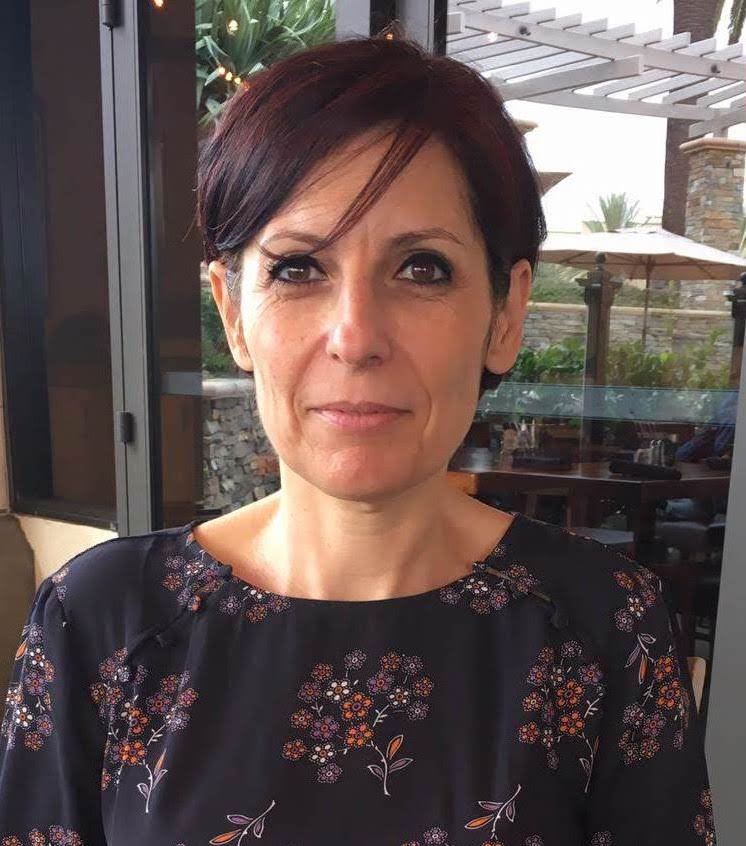 Dr. Ghada Maurad 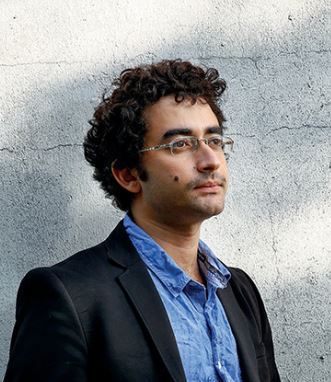 Omar Youssef Souleimane |
Dr. Ghada Mourad teaches French and Francophone studies and Arabic literature in translation at the University of California, Irvine and California State University, Fullerton. She translates from Arabic and French. Her translations appeared in various US literary journals and magazines. The Last Syrian, her first book-length translation, is scheduled to be published by Seagull Books in spring 2024. Omar Youssef Souleimane is a French Syrian writer born in 1987 in Qoteyfeh, Syria. He studied Arabic literature and worked as a journalist in Syria before moving to France in 2012. Since his exile, he has published four novels: Le Petit terroriste, Le Dernier Syrien, Une chambre en exil, and Être Français, as well as five poetry collections: Qu’ils meurent; L’enfant (Kuwaiti Saad Al Sabbah Prize winner); Il ne faut pas qu'ils meurent; La mort ne séduit pas les ivrognes (Prix Amélie Murat), and L'enfant Oublié; Loin de Damas (Prix poète en résistance). In 2022, Le Petit terroriste was adapted and performed on stage in Versailles, France. Presentation: The Politics of Sexuality in Literary Translation - In this presentation, the author and translator will discuss the intersection of politics and sexuality in The Last Syrian, a novel that narrates the early days of the Syrian revolution as it is experienced by four young Syrians: Youssef, a young Damascene, dreaming of freedom and experimenting with his sexuality; Mohammad, a young Syrian and Youssef’s sexual partner; Josephine, a young Alaouite organizing the anti-government protests against the will of her family and religious community; and Khalil, an enthusiastic activist recruited and secretly enamored by Josephine; he is arrested by the intelligence service agents and taken to prison where he is mercilessly tortured. They all meet in Josephine’s apartment to share their vision of the future, their dreams, and their hopes. As these characters’ destinies unfold in the narrative, so does their revolution; it gets violently repressed by the regime, appropriated by the well-funded armed Islamist fundamentalists, and instrumentalized by the Syrian National Council for opportunistic ends. As the novel’s denouement shows them defeated and disillusioned, Youssef reveals the main reason for their inability to carry a revolution: “Our families do not accept us for who we are; for that, we would have to be mere reproductions of them. We will be persecuted because of our difference[s].” At this moment, the novel ceases to be only a narrative of the Syrian Revolution; the ending circles back to the beginning to signal that “this is an old story” about inter-generational conflicts, rebellion, and emancipation. It is about the indomitable yearning for freedom that, despite all the obstacles and setbacks, will reemerge until it ends in deliverance. |
|||
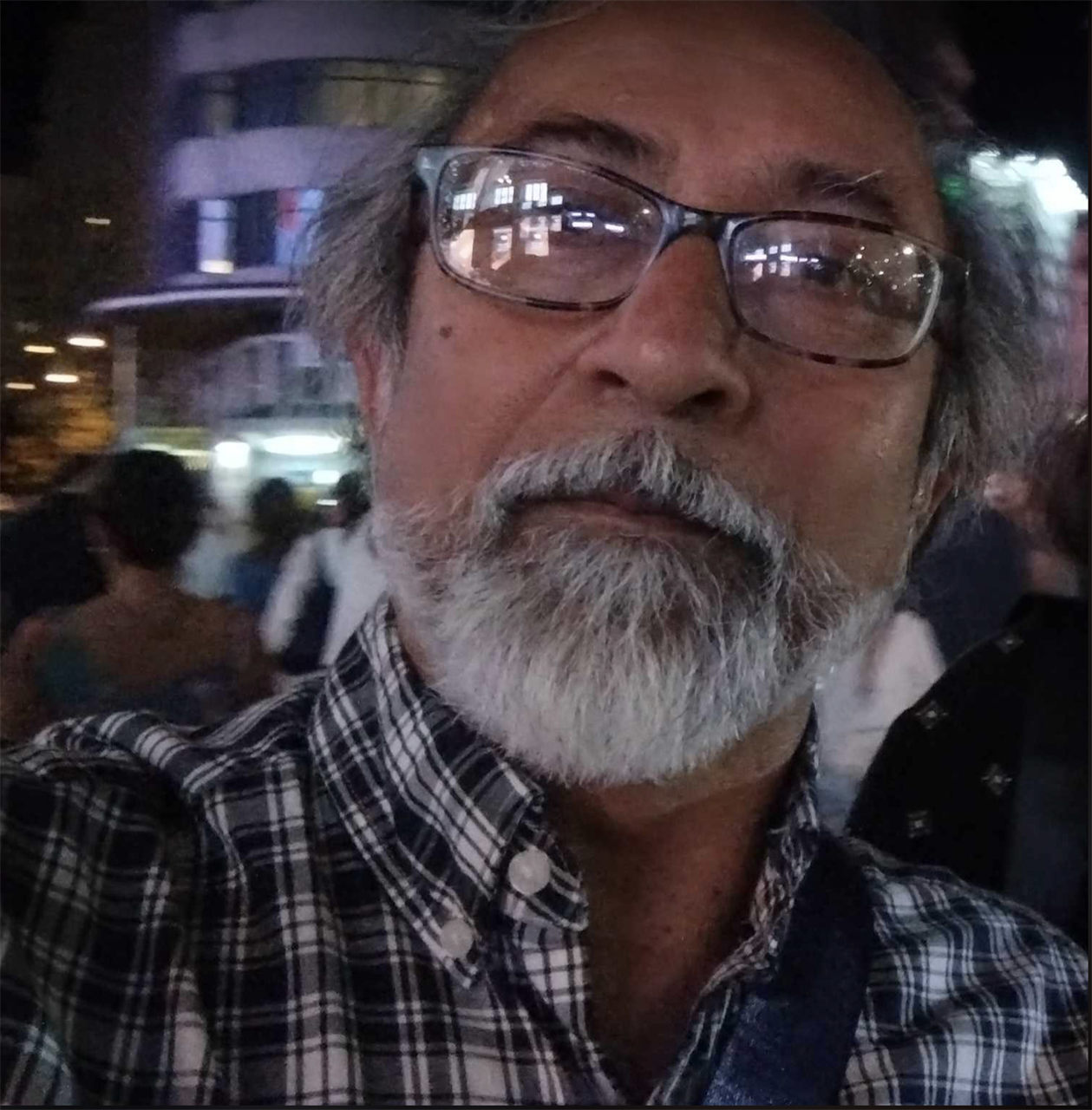 Moazzam Sheikh |
Born and raised in Lahore, Pakistan, Moazzam Sheikh is a librarian by profession and the author of three books of fiction, his most recent being A Footbridge to Hell Called Love (San Francisco Quartet, vol. I), as well as a book of stories in translation by the noted Urdu writer Intizar Husain. He also edited/translated A Letter from India; Contemporary Pakistani Short Stories (Penguin, India) and guest-edited Chicago Quarterly Review's South Asian American Issue (2018). Presentation: Challenges of Translating from Punjabi and other Southeast Asian Languages of Lesser Diffusion - Punjabi language was only partitioned geographically at 1947 Partition but politically as well into two scripts known as Shahmukhi (West Punjab) and Gurmukhi (East Punjab). As if that wouldn't cause enough difficulty in accessing and reading literature from across the border, the Pakistani state decided, for complex statist reasons, to not make Punjabi medium of instruction in school at all even up to Elementary level, choosing instead to keep Urdu in that role, something the British had done after conquering what constituted Punjab in 1849. Thus, generations before and after mine have grown up not reading Punjabi either in schools or elsewhere despite Punjabi being the language of the masses with access to Punjabi folk music, qawwalis, popular film songs, movie, theater, and TV serials. Punjabi speakers have grown up in Pakistan before and after Partition unaware of the works produced by Punjabi poets and prose writers. Although there's more awareness of the issue, that Punjabi should be made the language of instruction, infrastructure and resources and support to discuss Punjabi literature and/or translate it are meager or inadequate. A person who takes up the role to translate Punjabi literature into a target language embraces an uphill task. I will expand on what entails the uphill task of translating from Punjabi. |
|||
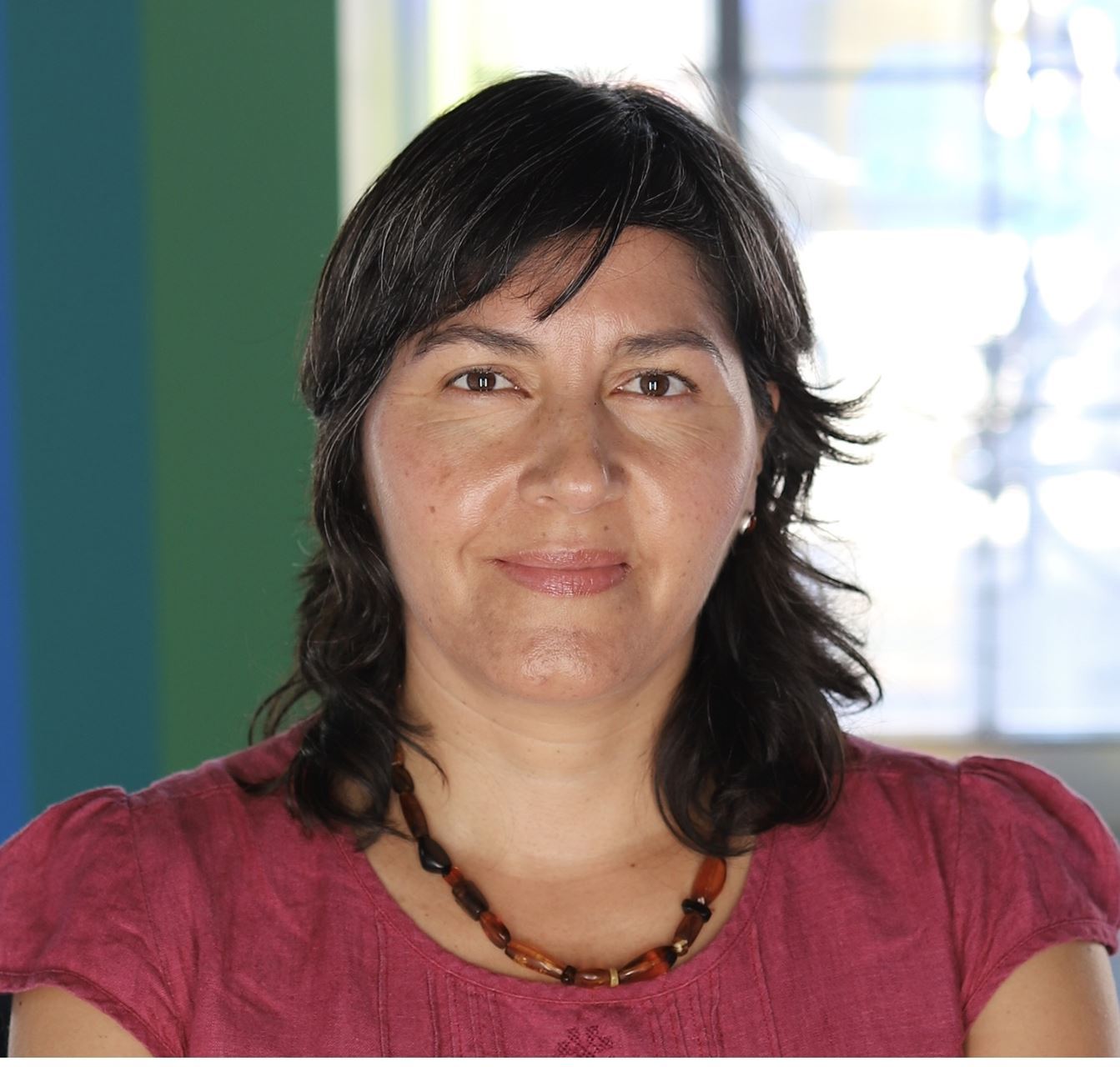 Darinka Mangino |
Darinka Mangino is a conference interpreter for Spanish, English, French & Portuguese based in Paris, France. She holds a master's in Advanced Studies for Interpreting Trainers from the University of Geneva, Switzerland; a PGC in Forensic Linguistics from Aston University, United Kingdom and a university degree in Conference Interpreting from Instituto Superior de Interpretes y Traductores, Mexico City. She is a member of the International Association of Conference Interpreters (AIIC) and the Mexican Translator´s Association (OMT). Currently Darinka is a member of the Committee of Admissions and Language Classification of AIIC for 2022-2025. Mangino has over 25 years of professional experience as a high-profile Conference & Diplomatic Interpreter. She provides her professional services for several international organizations, NGO´s and private companies. Darinka has taught at the undergraduate and graduate level for over a decade and coaches interpreters with future-proof skills needed for 21st century in-person and virtual meetings. Presentation: Idioms as a Tool for Comprehension (Bird Terms for Flying High) - Freelance translators and interpreters are often advised not to put all their eggs in one basket when it comes to clients. But exploring a new field of knowledge might take before becoming a full-fledged subject matter expert. Unless someone takes you under her wing and you kill two birds with one stone by learning the context and terms you need to get your ducks in a row and be an early bird in the upcoming assignments. This session will provide a bird´s-eye view of some terms and tools used in birdwatching that could help language professionals understand and find specialized terms used in the fields of health, environment, and sustainability. It will also explore the use of expressions related to birds in general language and in cultural references from national flags to mythology. (In addition, participants will learn about the benefits of birdwatching as selfcare or a relaxing hobby.) |
|||
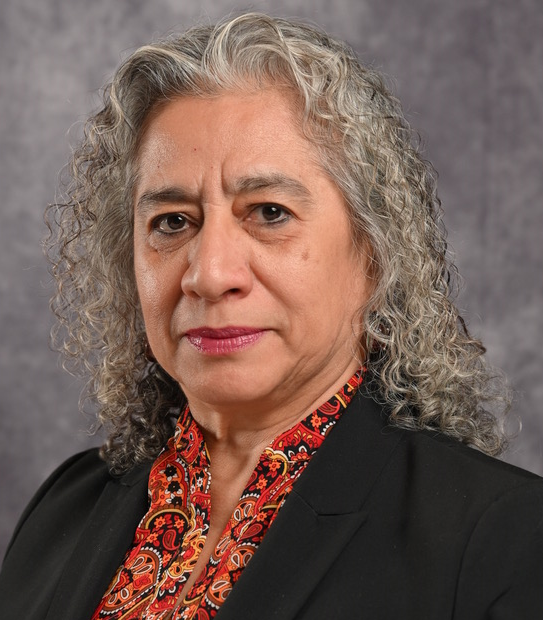 Susana E. Torres |
Ms. Torres is certified both in medical and court interpretation. She has been an interpreter for the last twenty-five years, interpreting in a variety of settings such as community events, school meetings, immigration, and the medical and legal fields. In addition to her interpreting experience, she was also the Director of the Office of Court Interpreters for the Rhode Island Judiciary for a period of fifteen years, and for the last three years she has been working as the Program Manager for Interpreter Training for the Massachusetts Trial Court. She also developed a medical interpreter training for a local clinic in Rhode Island where she teaches three courses per year. In her spare time, she collaborates with a local theater translating Spanish plays into English for audiences that like to enjoy attending live plays with Spanish subtitles. Presentation: Making the Code of Professional Conduct a Lived Experience - As interpreters, we are all aware of the importance of our Code of Professional Conduct, or at least we should be. We have read it, discussed it, argued about it, even dissected it to really understand it. Yet, when it comes to implementing it, some interpreters get shy about putting it into practice where it matters the most – the courtroom. In this Zoom session, I will address some reasons this may happen, as well as exploring ideas for overcoming some prickly situations which could lead to an interpreter being dismissed from the courtroom or even terminated from providing services. Presentation participants will be presented with scenarios, discuss the interpreter’s actions—or lack thereof—in these situations, and come up with solutions to uphold the Code. Although this presentation will mostly address issues that arise in the legal setting, the solutions can certainly be applied to the medical encounter as well. |
|||
| Saturday September 30th Presentations Order of Appearance |
||||
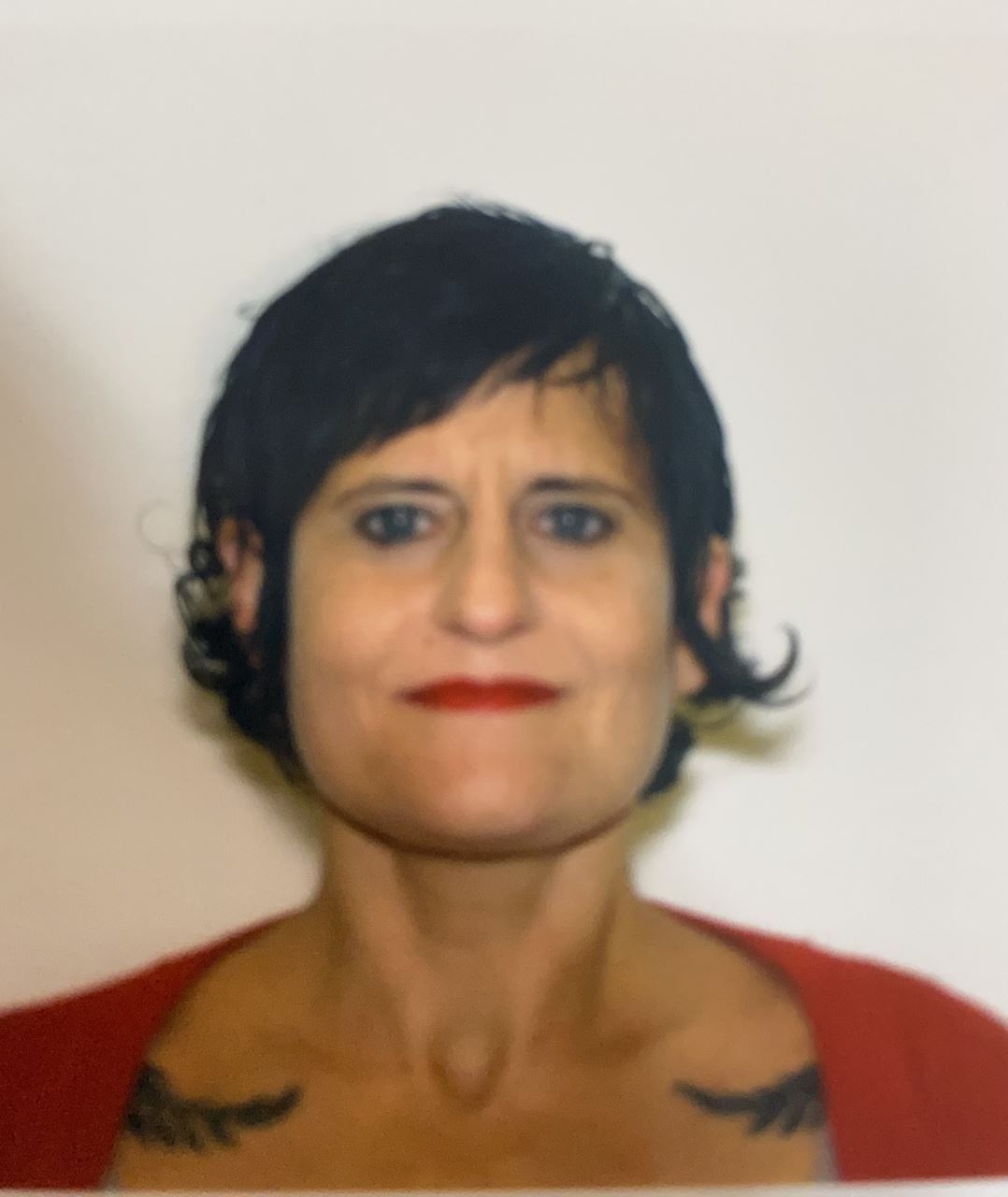 DR. Chantal M. Portillo  Richard Hall |
Chantal has a BD, a Master’s, and a PhD in the fields of Translation, Interpretation, and Intercultural Communication. Chantal was also certified as a Judicial Translator and Interpreter by the Ministry of Foreign Affairs in Spain, where she also worked as a conference interpreter and translator for 10 years before moving to Oregon in 2013. Chantal began working as a freelance interpreter for CLAS in 2015 which is, “the best professional step she ever took.” After 25 years as an independent contractor Chantal became staff interpreter for the OJD in January 2020 where she interprets and translates and is part of CLAS' EDI committee. Richard Cross Hall, NAD V, CI/CY, SC;L, OCCI has been interpreting professionally since 1996. He has interpreted in a wide variety of settings which includes nearly 20 years of video remote interpreting experience. He helped grow a small community-based referral agency into a leader in the Video Relay Industry serving as a Video Interpreter, Call Center Supervisor and, National Recruiting Manager. He began working in the legal system in 2007 and has been working extensively throughout counties in Oregon and Washington. He was hired by Court Language Access (CLAS) in February 2020 and currently leads the Remote Interpreting Team. Chantal Portillo realized she wanted to be an interpreter at 12 years old, while watching a documentary on the Nuremberg trials. Presentation: Team Interpreting - Moving Towards Collaborative Interdependence - This webinar intends to offer a more collaborative approach to team interpreting in the courts, thereby improving access to justice and the accuracy and completeness of the interpretation. Although presenters will focus on legal interpretation scenarios, this approach can be used in any scenario that requires team interpreting. By the end of the webinar attendees will be able to: identify the two roles interpreters assume when teaming and articulate responsibilities for each role while implementing practical strategies to improve efficiency and effectiveness of the interpreting team. Attendees will be introduced to/revisit best practices using an "open teaming model" based on collaboration and interdependence developed by researcher in interpreting practices Jack Hoza, moving away from the on-off interpreter construct and towards a co-interpreting work ethic. The benefits of interdependence will be explained together with exploring the added value of a holistic team concept through articulating the active and support interpreter roles and responsibilities of each role and by identifying the four key features of an effective team. Finally, attendees will be able to incorporate practical skills and strategies when teaming by practicing a series of pre-assignment, during the assignment and post assignment conversations amongst the interpreter team. |
|||
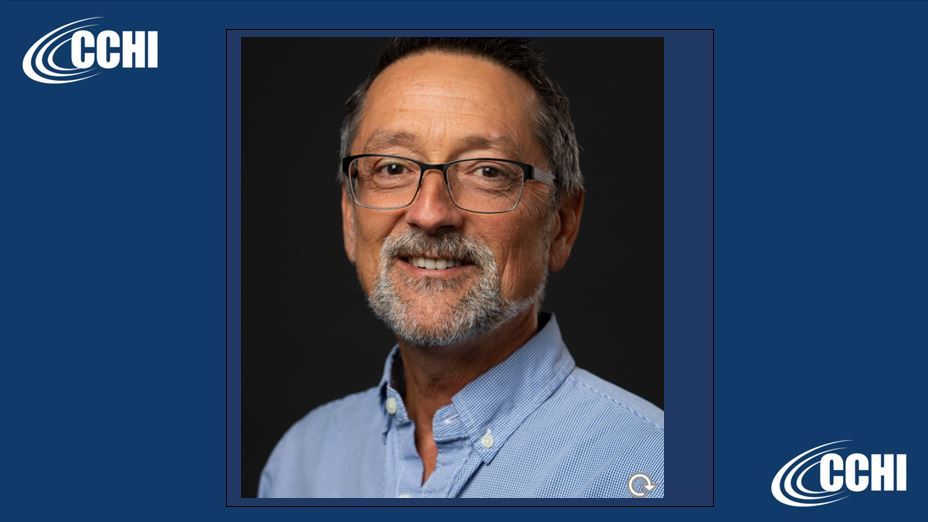 Mateo Rutherford |
Mateo is a Manager for Interpreting Services at UCSF Health. He holds master’s degrees in Integrative Biology from UC Berkeley and in Spanish Interpretation & Translation from the Monterey Institute of International Studies. He has been a conference interpreter since 1987 throughout Latin America, Europe, Asia and the United States. He specializes in the life sciences and technology. He has taught molecular biology, disease prevention, document translation, medical and conference interpreting at UCB; UCSF; UEES (Guayaquil, Ecuador); CCSF and for the CDC. Mateo is the Chair of the CCHI Commission, and a Spanish CHI™. Presentation: Attitudes and Solutions for Gender-Neutral Language - CCHI surveyed healthcare interpreters across the United States on their attitudes and solutions when interpreting gender-neutral language and terminology. This presentation summarizes the results of the 1,230 respondents. Both languages that have grammatical gender and languages that do not were included in the survey. The largest number of responses were from Spanish interpreters 869. A total of 50 languages were represented in the survey responses. I will present details of what Spanish interpreters think and feel about gender neutral terms and some of the solutions they use when interpreting these terms during their assignments. |
|||
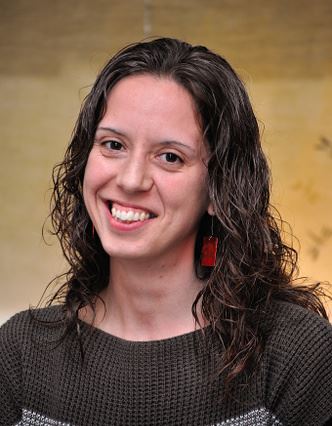 Dr. Nazaret Fresno |
Dr. Nazaret Fresno is an Associate Professor of Translation and Interpreting at the University of Texas at Rio Grande Valley. She is also the Director of the Translation & Interpreting programs at UTRGV, and she is currently serving as Associate Chair of the Department of Writing & Language Studies. Her research interests include audiovisual translation, media accessibility, website localization, and healthcare translation. |
|||
 Dunia Mirindi Dunia Mirindi
|
Dunia Mirindi is a professional interpreter and translator in Harare, Zimbabwe working with The United Nations High Commissioner for Refugees ( UNHCR ) and its Implementing Partners such as Red Cross International; USCIS, RSC Africa, and many others. He helps the refugee community in Zimbabwe by facilitating communication between them and UN staff. Being an interpreter/translator is a very exciting experience. You learn something new every day. If not a new word, then a new term, phrase, or expression. The Benefits and Challenges an Interpreter/Translaor Faces When Interpreting/Translating For A Refugee In The Community: I love being an interpreter not only because it helps me grow and improve my language skills, but also because I get to meet different types of people. With that comes benefits as well as challenges. This results in some clients tarnishing your name, telling others what a bad interpreter you are or even threaten the interpreter directly. Also, as an interpreter some stories return to your mind over, and over again because they are mentally disturbing to you: e.g. Someone explaining how he/she witnessed killings, torture, any number of other atrocities. Yet for many clients, it's a blessing to have you translate or interpret for them. Some people will express overwhelming gratitude toward you just because you sat in an office interpreting everything they said. Even if they did not understand what you said, they acknowledge your time and effort in serving them and they appreciate that you were there to facilitate their communication. Like every job, interpretation/translation has its pros and cons. I enjoy serving the refugee community by doing this job and will share my experiences and suggestions in this presentation.
|
|||
.png) Amanda Wheeler-Kay
|
Amanda Wheeler-Kay is a Certified Health Care / Community Interpreter in Spanish/English who has interpreted in the Portland area since 2007. She has worked for several years as an educator creating and teaching workshops, often in collaboration with other language equity advocates and organizations. Topics include language equity, improving interpreter skills, best practices for working with interpreters, and the rights of LEP individuals. Amanda previously worked as a bilingual social worker for multiple agencies including Child Welfare and North Clackamas School District, and as Executive Director for Los Niños Cuentan, a small local non-profit supporting Latino survivors of domestic violence. She has served on the board of the Clackamas Volunteers in Medicine clinic and is a current board member of Nuevas Sonrisas. She currently lives in Oregon, her home state, but has also lived in Washington DC and El Salvador. Piyawee Ruenjinda works as a qualified Thai/English Health Care interpreter and as a legal interpreter for the Oregon Judicial Department. Being from a community with a language of lesser diffusion, she recognizes inequalities derived from language access and literacy barriers and thrives to be part of the solutions. Piyawee is an active Thai community member in translating and disseminating information—for example, regarding COVID-19, or assistance programs—and helping connect people with services. Her experience in training includes facilitating a cross-cultural communication training program for Thais and non-Thais, recruiting speakers, and coordinating educational travel programs for Americans. Prior to her relocation from Thailand to the US in 2016, Piyawee worked with people from diverse countries and backgrounds in management for private companies, specializing in business operations, quality assurance, and customer services. Presentation: Navigating Ethical Consideration in the Provision of Sight Translation in Health Care and other settings - Language professionals are often assumed to be able to perform any number of skills in the course of an interpreting assignment, including sight translation. It is expected that interpreters will be able to sight translate ANY written document that is provided to them in the context of the interpreting session, despite the fact that training in these skills is minimal or nonexistent for most interpreters. This class will explore ethical and practical questions related to navigating how and when to provide sight translation, and when to say no. Using the National Council on Interpreting in Health Care document Sight Translations and Written Translation: Guidelines for Healthcare Interpreters as a guide, we’ll consider: • Under what circumstances is it appropriate to read a written text and simultaneously give an oral rendition in another language (sight translation)? • Should an interpreter produce written translations during his/her interpreting duties? If so, under what conditions? • What additional training is necessary to develop the necessary competencies in either of these functions? |
|||
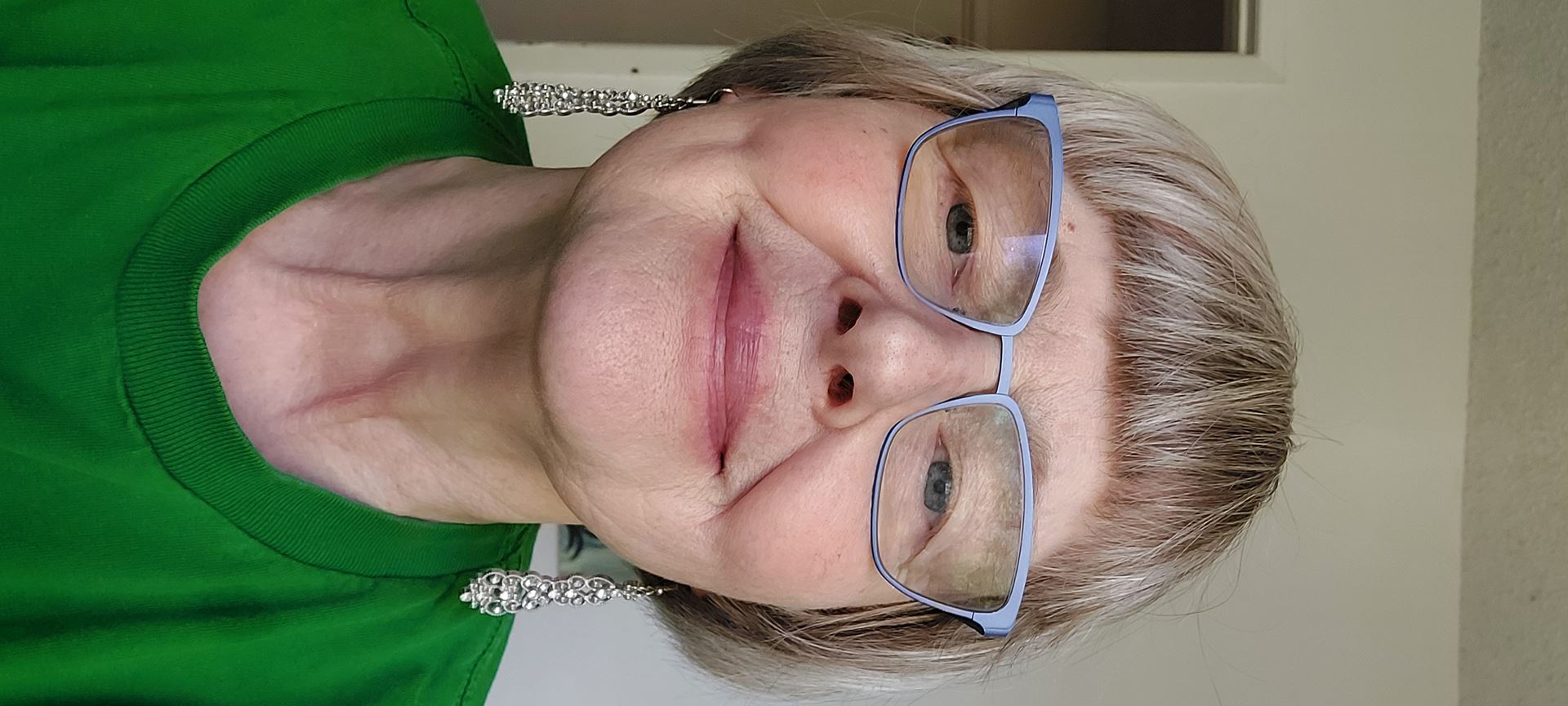 Edina Toole |
“When you are a refugee, it feels like your life is over. You must carve out a new life at a time when you are most vulnerable, especially when you don’t speak the language. I hope my story helps refugees know there is life after, even if you are broken.” – Edina Toole Edina Toole's remarkable journey is characterized by perseverance. While difficult, Edina’s story played an integral role in her passion for helping others in similar situations. Edina was Born in Budapest, Hungary, under Communist Soviet rule. Her mother introduced her to different cultures and insisted Edina learn German. By the time she reached fifth grade, Soviet rule required she learn Russian as well. Taking English lessons was her own idea. She chose English as a foreign language in high school (along with four years of required Russian). At age 17, Edina’s idyllic childhood took an unexpected turn when she traveled to Austria on vacation with her father and he informed her that he planned never to return to Communist Hungary. While she yearned for the family, friends, and life she had unknowingly left behind, Edina feared the consequences if she returned alone. Edina and her father reported to the Foreign Police in Vienna, where they were separated and sent to a refugee camp in a small Austrian village. They called an unpleasant wooden, former military barrack “home” for nearly a year. Scroll forward to 2022 when Edina discovered that a book she translated in Vienna for a U.S. publisher (English to Hungarian) had been published! She immediately felt her place was back in the field of foreign languages as an interpreter and translator. She joined OSTI and an NOTIS, attended numerous interpreting workshops, and succeeded in securing a publishing contract with the International Institute of Buffalo. She hopes her children, grandchild, and colleagues will never experience anything like she did. There must be an easier way to become a translator or interpreter. Presentation: Understanding Refugee Populations When Providing T&I Services - This presentation will provide translators and interpreters with tips for working with refugee populations. Refugees in Oregon, as well as elsewhere in the world, are at the most vulnerable phase of their lives. They have just left everything behind. For youth and children, this may include family, friends, and school. Adult refugees have left family, too, as well as high level jobs and a comfortable lifestyle in some cases. Many others flee inhuman or inhumane circumstances where their lives may have been in jeopardy due to political or humanitarian reasons. For refugees who do not speak English, not understanding anything and being dependent on the trustworthiness of strangers, including interpreters, is an unimaginably bewildering experience. Refugees are often retraumatized by having to repeatedly retell painful stories that may include violence. Imagine the humiliation, the emotional exhaustion, shame, and embarrassment. Add to this the many formalities, interviews, and bureaucracy of the asylum process. In this presentation we will explore how an interpreter or translator can be sensitive and cautious when transmitting the words of utterly vulnerable individuals and rendering their stories into English. We will examine not only cultural considerations when interpreting for refugee populations, but also discuss the importance of building a basic human connection with clients and why sensitivity is crucial when dealing with populations who are destitute, desperate, and innocent victims of pasts beyond their control or choosing. |
|||
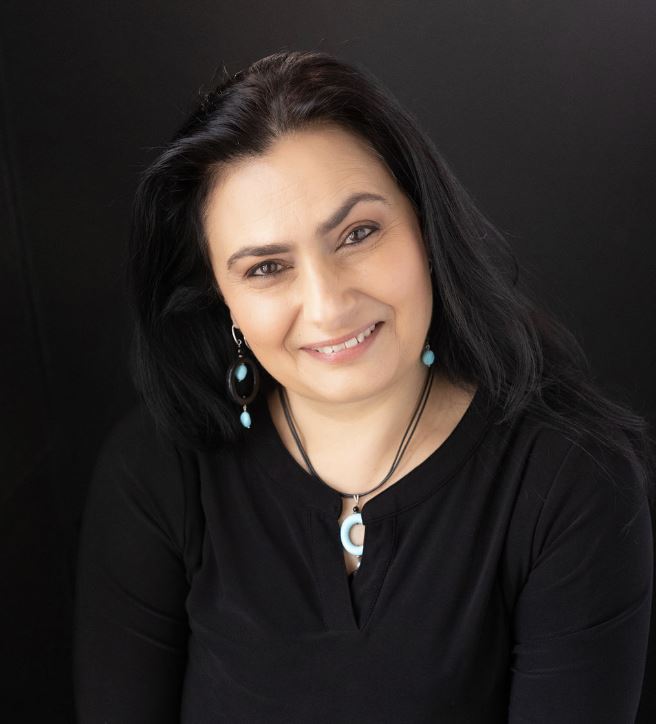 Giovanna Carriera-Contreras |
For over 30 years, Giovanna has been a noteworthy leader in the language industry space. She is a sought-after industry national and international speaker and published language industry author, having co-authored The Community Interpreter® - International (TCII) and The Medical Interpreter. She has trained on almost any facet of community and legal interpreting, ethics, skills, and strategies. She is a founding member and Chair of the American Association of Interpreters and Translators in Education (AAITE). She tirelessly focuses on promoting the professionalization of Interpreters and Translators and language access. As a strong proponent of professional development for interpreters and the advancement of the profession, Giovanna is very active in the interpreting community. She is involved in developing professional standards for the interpreting industry nationally through ASTM International and internationally through the International Organization for Standardization (ISO). Giovanna is a member of ASTM Committee F43 on Language Services and Products and of the Review Committee of F2089-15, “Standard Practice for Language Interpreting.” She is the Chief of the US Delegation for the ISO/TC 37/SC 5 for translation, interpreting, and related technology standards. She serves as Editor for the revision of ISO 13611:2021(WD) “Interpreting Services— Community Interpreting —Requirements.” She participates as US Expert in the ISO/TC37/SC5/WG4 “Interpreting and Translation Teaching and Training Programs.” Giovanna is a member of the Advocacy and Language Access Committees at ALC and the Standards Committee at ATA. Giovanna was honored with the 2020 Bill Daniels Ethical Leader of the Year Award for her unwavering commitment to principle-based ethics in business despite and especially during the COVID-19 pandemic to promote language access for Limited English Proficient (LEP) individuals. Presentation: Upgrade Your Sight Translation to Improve Your Consecutive and Simultaneous - Sight translation is often undervalued and undertrained. It's an important interpreting mode to have in your toolkit by itself, but it can also be used to improve both your consecutive interpreting mode and note-taking. For consecutive, repeated sight translation practice can help integrate terminology, phraseology, and syntactic structure into your consecutive delivery. For notetaking, having the time to assess concepts used during assignments and create symbols that interpreters can refer to, can make the difference between keeping up with the speaker or falling hopelessly behind. This workshop will help attendees upgrade their sight translation skills through practical exercises, practice resources, and strategies for at-home practice. |
|||
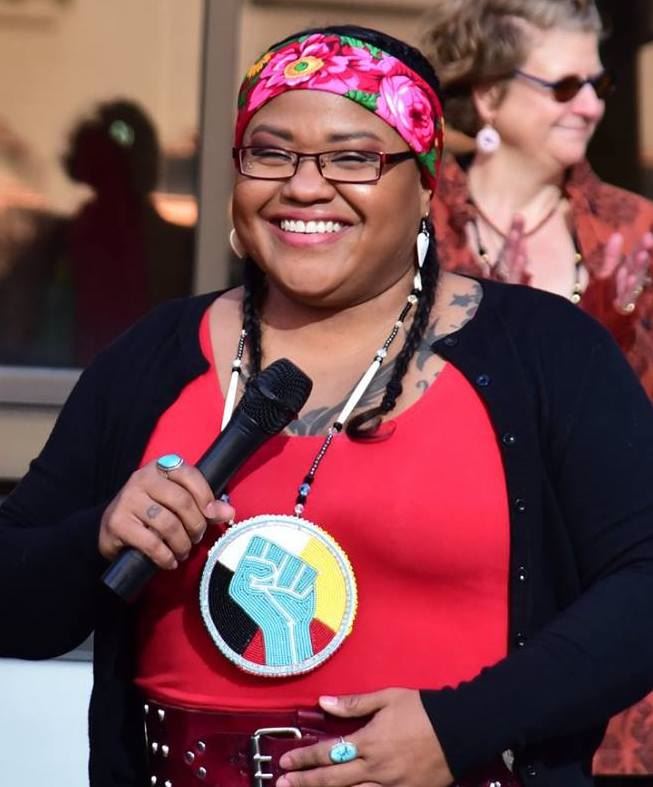 tai simpson |
tai simpson (she/her) is also known as “The Storyteller” in the Indigenous language of the Nimiipuu, commonly known as the Nez Perce Tribe. As a direct descendant of Chief Redheart, tai takes great pride in serving her community as an organizer and advocate. tai catalyzed her racial and social justice organizing while studying Sociology and Political Philosophy & Public Law at Boise State University. tai is a community organizer for the Indigenous Idaho Alliance. In 2018 and 2019, the Indigenous Idaho Alliance drafted the proclamations for Indigenous Peoples Day for the State of Idaho and the City of Boise. In 2020, the Alliance helped to draft a Concurrent Resolution acknowledging Missing & Murdered Indigenous Peoples Day in the Idaho Legislature. As a Co-Director with the Idaho Coalition Against Sexual & Domestic Violence, tai focuses on violence prevention and response within Idaho’s five tribal communities. In 2019, tai gave a TEDxBoise talk exploring the belief that Indigenous “old ways” need to come back in style rejuvenated to interrupt harmful social norms perpetrated against Black and Indigenous communities. As an antiracism educator and community organizer, she uses Indigenous storytelling to depict the lens of “old ways” and how they protect the sacred, build strength in the community, and keep nature in balance; these principles support her work to champion radical inclusion, equity, and liberation. Presentation: A Storyteller's Guide to Changing the World - The world cannot be understood without telling a story. There isn’t any center to the world, but a story and storytelling is the most direct connection between two people. The way we live our lives tells a story, including how we treat one another and how we engage in the world. In this session, tai simpson explores how storytelling is key to building community and changing the world. Using themes such as radical inclusion, liberation, and futurism, tai uses traditional and contemporary Indigenous storytelling and opens up our ability to leverage the practice for healing work, equity, and connection. |
|||
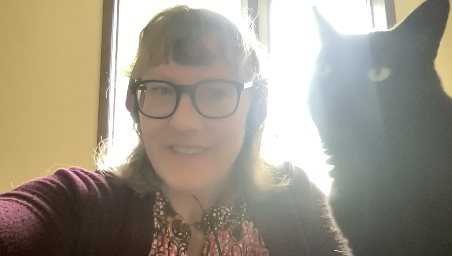 Allison deFreese |
Allison A. deFreese's recent translations include María Negroni’s Elegy for Joseph Cornell (Dublin: Dalkey Archive Press, 2020), José Moreno Hernández’s Soaring to New Heights: The Memoir of a Child Migrant Farmworker Who Became a NASA Astronaut (Renuevo, 2020), Verónica González Arredondo’s I Am Not That Body (Montreal: Pub House Books, 2020), as well as Verónica's book Green Fires of the Spirits (the Benemérita Universidad Autónoma de Puebla's University Press, Libros BUAP, Mexico, 2022), and Karla Marrufo’s Flame Trees in May (Dalkey Archive Press and Deep Vellum Books, 2023). She is winner of Southeast Review's most recent The World's Best Short-short Story Contest and published two poetry chapbooks in 2022, The Night with James Dean and Other Prose Poems (winner of Cathexis Northwest Press's 2022 chapbook contest) and Nurdles and Other Poems. Presentation: Literary Translation Open Mic - Please join OSTI for a virtual literary translation open mic! Bring a work in progress to read or come and listen to poems, short stories, and creative nonfiction from around the world! We want to hear from you! To sign up for an eight-minute spot to read or present at this live, virtual event, please email the OSTI conference team, conference@OSTIweb.org. We hope to see you there! |
|||
|
||||
.jpg) Gustavo Negrete |
Gustavo R. Negrete received his training at California State University in Fullerton, Extended Education Program in Court Interpreting. In 2014, he achieved national certification through the National Board of Certification for Medical Interpreters earning the title of Certified Medical Interpreter – Spanish and is also a Certified HIPAA Privacy Expert (CHPE). Mr. Negrete is the current Chair of the NBCMI and had previously served as the Secretary of the National Board. He is President and CEO of a micro interpreting and translation company; fulfilling language access needs in medical, legal, community, and education, as well as consulting and is the new managing director of TransInterpreting. Mr. Negrete has over twenty (20) year of experience in health care having served in several clinical roles and departments prior to becoming an interpreter. He is a staunch advocate for language access, LEP rights and the interpreting profession as an active participant in organizations who lobby and or promote these causes. Presentation: Empowering Change Through Advocacy: Why it Matters - The year 2020 was tumultuous, to say the least, changing paradigms in the world and making history. During the first half of 2020, our nation found itself drawn into two crises – not just the pandemic and its implications on healthcare for minority populations, but also medical challenges including matters of life and death. The speaker will discuss how the role of interpreters has evolved during these crises, and how advocacy can be used as a tool to promote equity and improve outcomes for marginalized communities. Attendees will come away from this session with a deeper understanding of the importance of advocacy in today’s world, as well as practical strategies for incorporating advocacy into their work as interpreters and language service professionals. |
|||
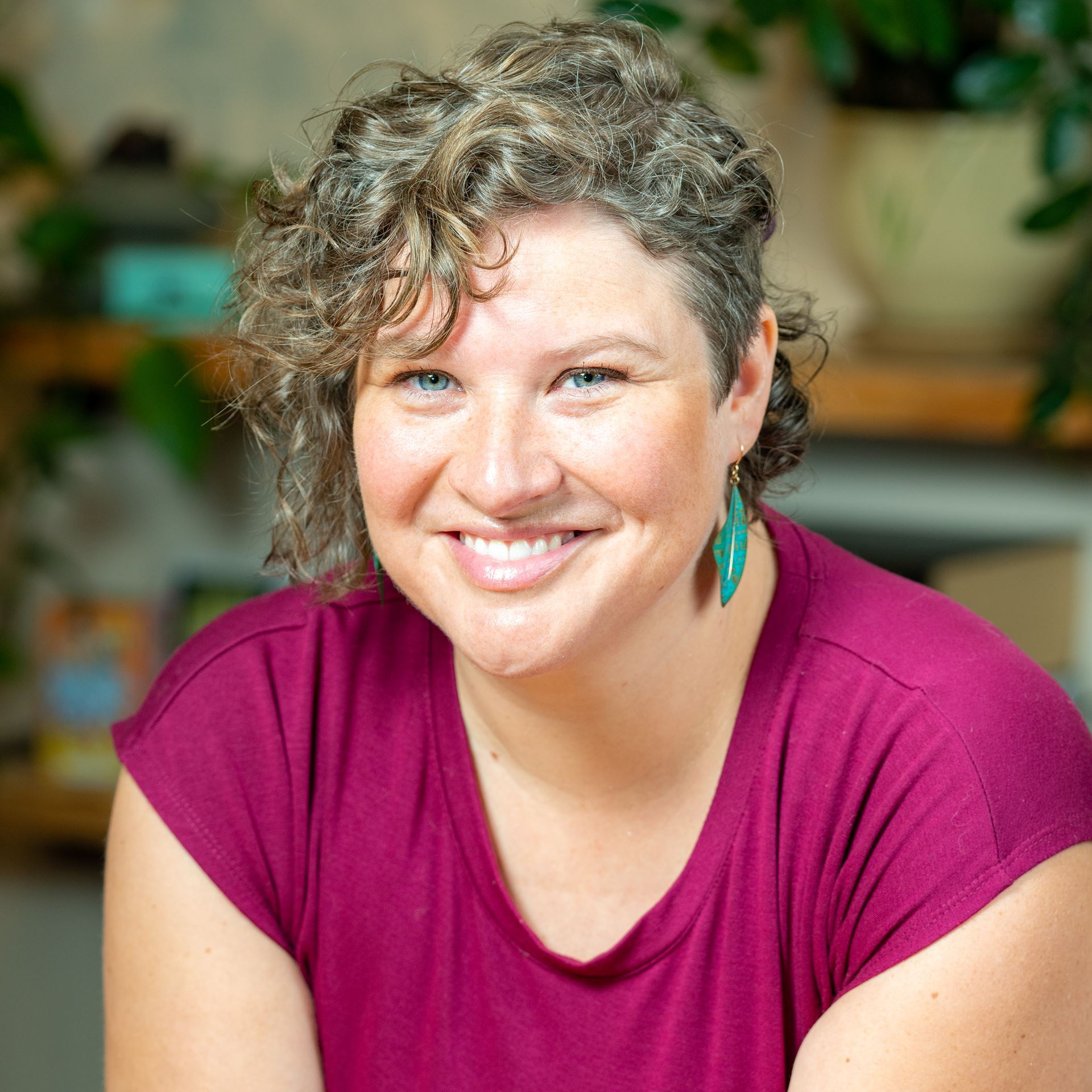 Christina Pfister |
Christina Pfister is a native speaker of both German and English. Born to American parents in Vienna, Austria, she has nursed a life-long fascination with language, culture, religion/faith, and the arts. She completed Gymnasium (Austrian high school equivalent) with a language concentration, which included studies in Latin, French, Russian, German, and English. She holds a BA in German (minors in Linguistics and Music) from Calvin University and an MA in Cross-Cultural Studies from Fuller Theological Seminary. She has a passion for conveying meaning across difference and genuinely enjoys the meticulous, creative, and rigorous task of literary translation. Christina has a particular interest in the fields of sociology, anthropology, theology, spirituality, missiology, pedagogy, and music. She has translated/edited/proofread/conducted research for publishing houses, academic institutes, non-profit organizations, and private clients since 2009 and founded Well Versed, LLC in 2018. Having worked with authors from Australia to Zimbabwe, she has been recognized as one of the top ten freelance Christian theology editors in the English-speaking world. This year she hosted her first 5-day writer’s retreat on the beautiful North Oregon Coast, which drew writers from five different US states and focused on contemplation, community, creativity, and (the writing) craft. She is honored to serve as Vice President of the board for OSTI and to serve on her local Small Business Advisory Council as well. She teaches classes for her local Small Business Development Center and has expanded her editorial work to include book coaching and ghostwriting services. Presentation: Work/Life Balance for Small Business Owners: Is It Possible? - “The reality is [that] self-employed business owners cannot take a day off. They keep going until being busy becomes mental exhaustion, being anxious becomes anxiety and the low mood turns into depression. Rebuilding yourself is a big job. Prevention is the cure.” —Penny Power, Founder, Ecademy As Jenny Blake states in her book Free Time, “There is no scenario where a burned-out business owner does better than one who is energized, expansive, and engaged.” But how to stay engaged and energized when we are the “Chief Everything Officers” (also her term) in our companies of one? When can we take a break? Won’t everything fall apart if we do? In this session we will explore the principles of Life Design (developed by Dave Evans and Bill Burnett of the d.lab at Stanford) as one possible approach to creatively building our way forward as small business owners. Translation and Interpretation require significant analytical and critical thinking skills; we spend much of our working life in our frontal lobes, using our highly developed executive function. That is fantastic, but it is not the most creative side of our brains. When it comes to building the businesses we desire—and becoming the bosses we want to work for—life design can provide some tools to help us access our creativity, dream, and then move those dreams into action. Join us for a brief overview of this school of thought and pick up some reframes you can apply to your business and your life. Because it’s never too late to design a life you love! |
|||
|
Carolina Romero Ramirez |
Carolina Romero is a passionate linguist on a mission to facilitate communication between different cultures. In her roles as translator and community interpreter, she has interacted with diverse communities on the east and west coasts. She is a firm believer in continuing education and professional development and recently received her second master’s degree with a focus on translation and interpretation. Presentation: Insights for Enhancing Your Delivery as an Interpreter - Interpreters rarely consider their speech behavior unnatural since they are seldom aware of it.... However, voice consciousness, i.e. knowing one’s voice and using it in a conscious way is one of the characteristics of professionalism in interpreting. (Horvath, 2017, 233). Empirical research was carried out to determine the standpoint of aspiring interpreters and interpreters already in the market regarding their knowledge about voice and its impact on their profession. This session aims to create awareness of speech behavior and sound production to enhance the quality of interpretation and overall communication. |
|||
.jpg) Mark Tardi
Katarzyna Szaulinska |
Mark Tardi is a writer and translator whose recent awards include a 2023 PEN/Heim Translation Grant and a 2022 National Endowment for the Arts Translation fellowship. He is the author of three books, most recently, The Circus of Trust (Dalkey Archive Press, 2017), and his translations of The Squatters’ Gift by Robert Rybicki (Dalkey Archive Press) and Faith in Strangers by Katarzyna Szaulińska (Toad Press/Veliz Books) were published in 2021. Recent writing and translations have appeared in Czas Kultury, Tupelo Quarterly, Denver Quarterly, The Scores, Full Stop, Poetry Northwest, The Millions, Interim, Circumference, Another Chicago Magazine, Berlin Quarterly, and in the edited volumes, Odmiany Łapania Tchu (Dom Literatury w Łodzi, 2022), New Voices: Contemporary Writers Confront the Holocaust (Vallentine Mitchell, 2023), and The Experiment Will Not Be Bound (Unbound Edition Press, 2023). Viscera: Eight Voices from Poland is forthcoming from Litmus Press in 2024. He is on faculty at the University of Łódź. Presentation: "Because English Offers no Feminine Form of Pelican": On Translating Katarzyna Szaulińska's Work & the Legislator Translation Model - In his influential essay “The Translator as the Creator of the Canon,” renowned Polish poet, critic, and translator Jerzy Jarniewicz outlines “two of the most interesting species of translator,” which he terms ambassadors and legislators. This presentation aims to expand upon Jarniewicz’s conceptual framework of the legislator-translator by drawing from my own experiences translating Polish fiction writer, playwright, and poet Katarzyna Szaulińska’s poetry and prose. Katarzyna Szaulińska’s a rising talent in contemporary Polish literature and is part of an exciting group of Polish women writers offering dynamic disruptions of surface in their work––in her case, across a range of genres. As Polish critic Justyna Sobolewska argues, Szaulińska’s work “proves that all boundaries, especially in the psychological sphere, are very fluid––including those between doctor and patient.” The aim is to explore how Jarniewicz’s legislator model coupled with, to borrow from Joan Retallack, the poethics of translation serve as constructive guides for my translational efforts. Moreover, in collaboration with the author herself, we will share some bilingual poems––in Polish and English––and discuss challenges specific to bringing Szaulińska’s work into English. |
|||
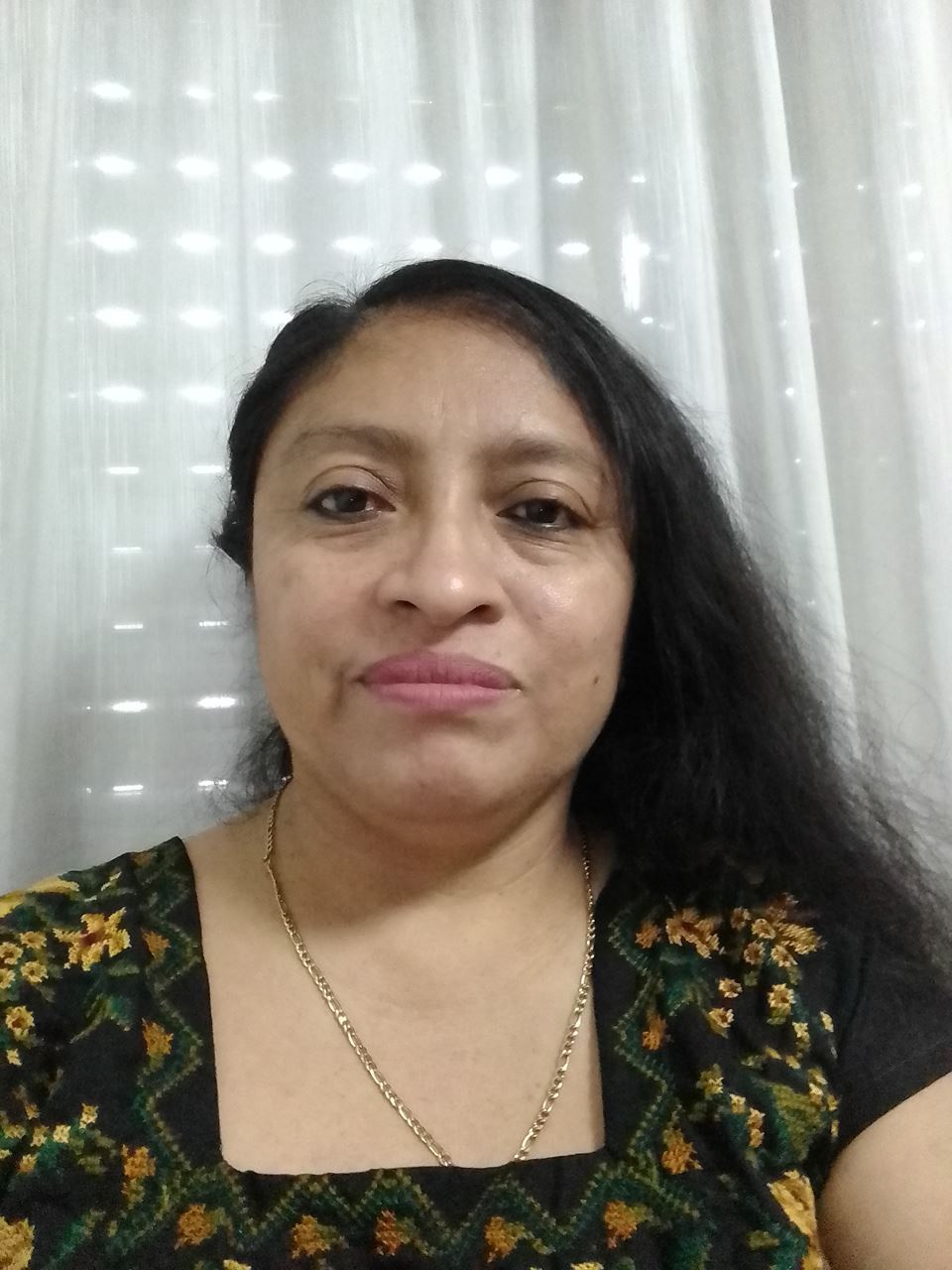 Lizbeth Carillo Can |
Originally from Peto (Yucatán, México), Lizbeth Carrillo Can is a native Mayan speaker, a Spanish-Mayan/Mayan-Spanish translator, a promoter of the Mayan language, and a Mayan language teacher. She holds a Bachelor of Education in Social Sciences. From 2002 to the present, she has taught courses to promote the acquisition of the Mayan language at various levels: beginner, intermediate, and advanced, as well as teaching Mayan literacy and grammar in collaboration with the Institutions: Directorate of Indigenous Education; Itzamná Municipal Academy of Mayan Language, at the institution's COEEST, CECIDHY's sites. She teaches "Spoken Yucatec Mayan" at the Yucatec Mayan Institute and at the UADY's (Autonomous University of the Yucatán) Language Institute Center. She has also been involved in several publication, translation and transcription projects, including: developing literary materials for Mayan-speaking communities published by El Instituto Nacional de Educación para Adultos (2004); voicing one of the characters in the audiobook "Kan maaya yéetel mejen tsikbalo'ob'' published by CEPHCIS, UNAM, Mérida (2009); creating a transcription and translation for the piece "Hispanic Linguistic Symposium" of Blooming, Indiana, E.E.U.U.; editing the book Elementos Esenciales del idioma Maya, published by the Ayuntamiento de Mérida (2015); translating of essays included in the 6th volume of the 2nd edition of the Yucatan Encyclopedia by the State of Yucatán’s Government (2018), publishing the text “U ch'a tuukulil u yúuchil ts'íib yéetel xook ich maayáaj t'aan”/ “Reflections on reading and writing in the Mayan language” (2019), and translating, into Spanish, the Mayan sections of the the Spanish-English-Mayan trilingual book Mar, Arena y Música:, Three Family Tales, written by Carlos Martínez Bolio (2020). Presentation: Working With Speakers of Mayan: the Seeds of Mayan Language and Culture/Las Semillas de mi Lengua: Cultura y Lengua Maya/U Neek'il in t'aan - Metafóricamente el maaya t’aan es una semilla y como tal, en su interior encapsula la forma de vida de los mayas, la identidad cultural, el pensamiento y una forma distinta de mirar al mundo. Una semilla que anhela ser plantada, que ansía germinar, crecer, dar frutos y producir nuevas plantas; sobre todo desea preservar la encomienda que los yuumtsiles le otorgaron: “Que su sonido retumbe por los cuatro puntos cardinales de su nación”. Metaphorically speaking, maaya t'aan (the Mayan language) is a seed and as such, it encapsulates the Mayan way of life, Mayan cultural identity, and thought. It represents different ways of seeing the world. It is a seed that longs to be planted, that wants to germinate, grow, bear fruit, and produce new plants. Above all, the seeds of Mayan language and culture wish to preserve the commendation with the ancestors and to offer a bridge between ancient traditions and the present. This presentation will introduce translators and interpreters to many unique aspects of Mayan language and culture to facilitate communication with clients of Mayan background. It will build mutual understanding between interpreters working with those of Mayan heritage and their clients. May the Mayan language and culture resound through the four cardinal points of the world. |
|||
|
|
Daya is a linguist with graduate degrees in Linguistics, Language, Literature, and Nepalese Culture. He has taught Nepali language courses at community colleges in Eugene and in Portland, Oregon after completion of his studies at the University of Oregon. He is a social worker at the Lutheran Community Services and coordinates school-related projects for refugees and immigrants. Since 2012 he has been recognized as a registered court interpreter in Oregon's Judicial Department. Ethnically, he identifies as a Newah native, and has been an activist for Newah ethnic rights for many years. He has given presentations about literature in Nepal and about Nepalese language and culture at regional, national, and international venues. Daya has also published several books in his native language and English and edited several journals. A well-known figure in Portland, Oregon's Nepalese community, Daya is the father of 3 children, and he and his wife are the grandparents of 4 children. You can find him on Facebook and he is available to support communication pertaining to Nepal and Nepalese-related matters. Presentation: Beyond Idioms: Legal Terminology vs. Emotional Language in the Courtroom - Many words and phrases in English do not have direct, "literal" equivalents in Nepali, yet my work requires that I provide accurate interpretation. Communications that are incorrectly expressed (or communicated) by an interpreter can jeopardize a court case, put clients at risk, and create additional legal consequences. Linguistic challenges can also create emotional distractions. To prepare ourselves as interpreters for such situations, we must evaluate the emotional state of clients and other individuals involved in the case, as well as addressing our own emotional reactions. As an interpreter, "guessing" a client's intention or inventing a context for what clients are expressing in their native language is never an option. I will present examples of critical scenarios and explore potential solutions with conference participants through group discussion. Possible solutions and outcomes in court cases may be influenced by multiple layers of language or by witnesses whose testimony may cause emotional distraction for the interpreter. In a court interpreting setting, the interpreter must be prepared for legal terminology, idiomatic expressions, and dealing with emotion and vicarious trauma. |

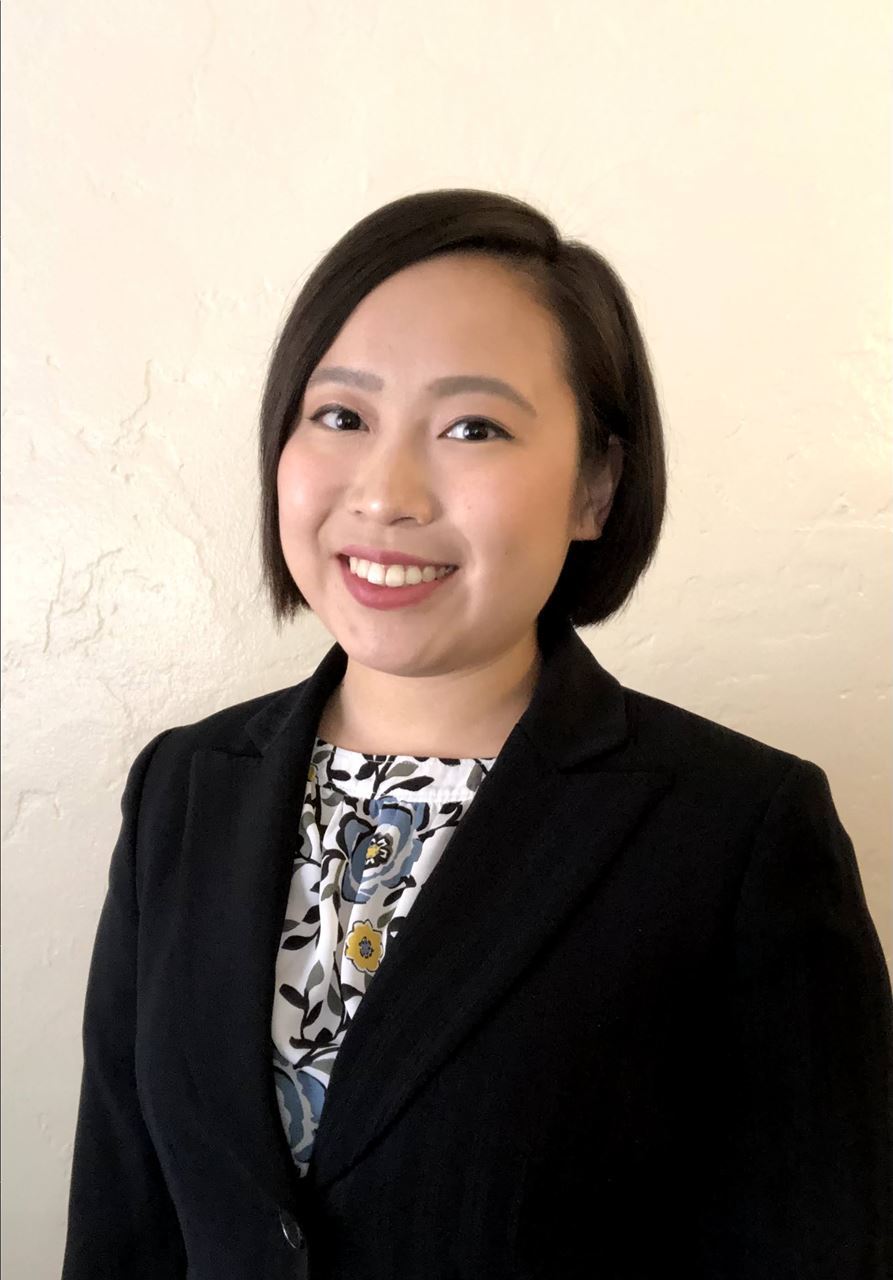
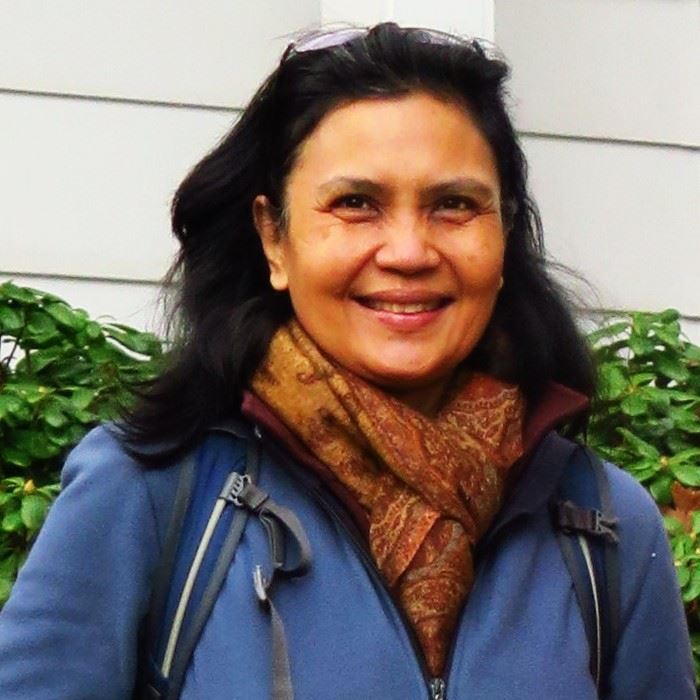 Piyawee Ruenjinda
Piyawee Ruenjinda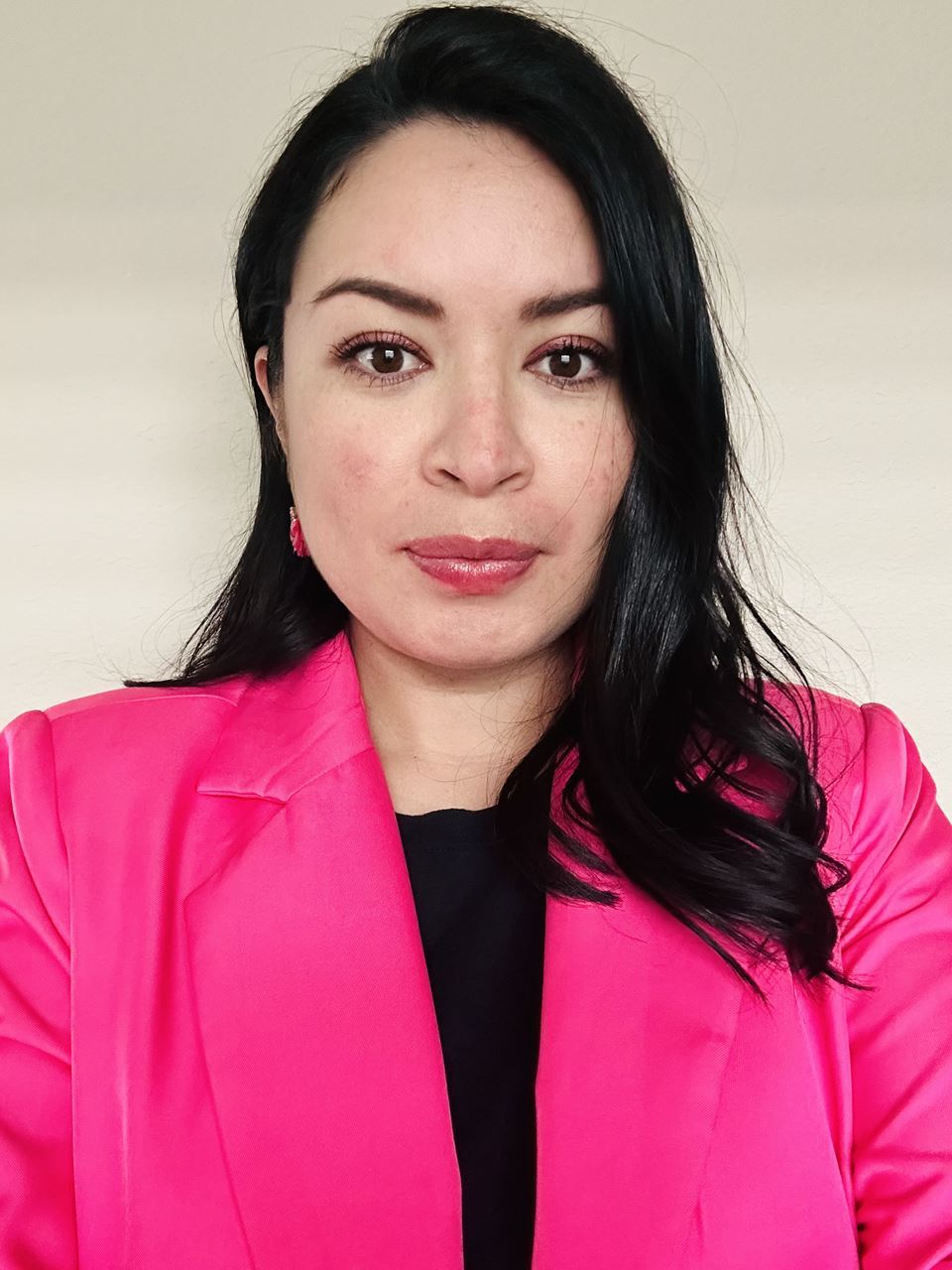
.jpg)
